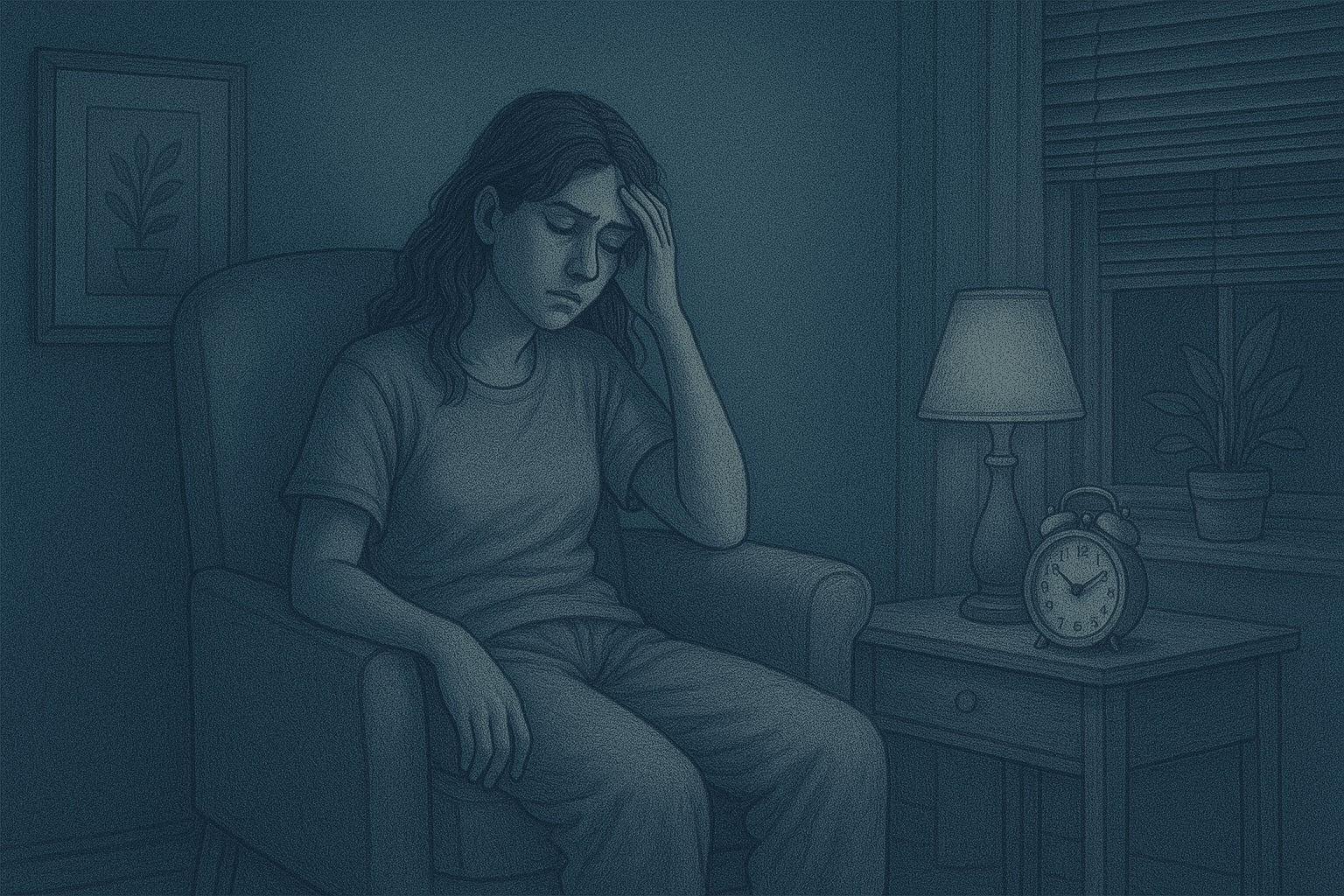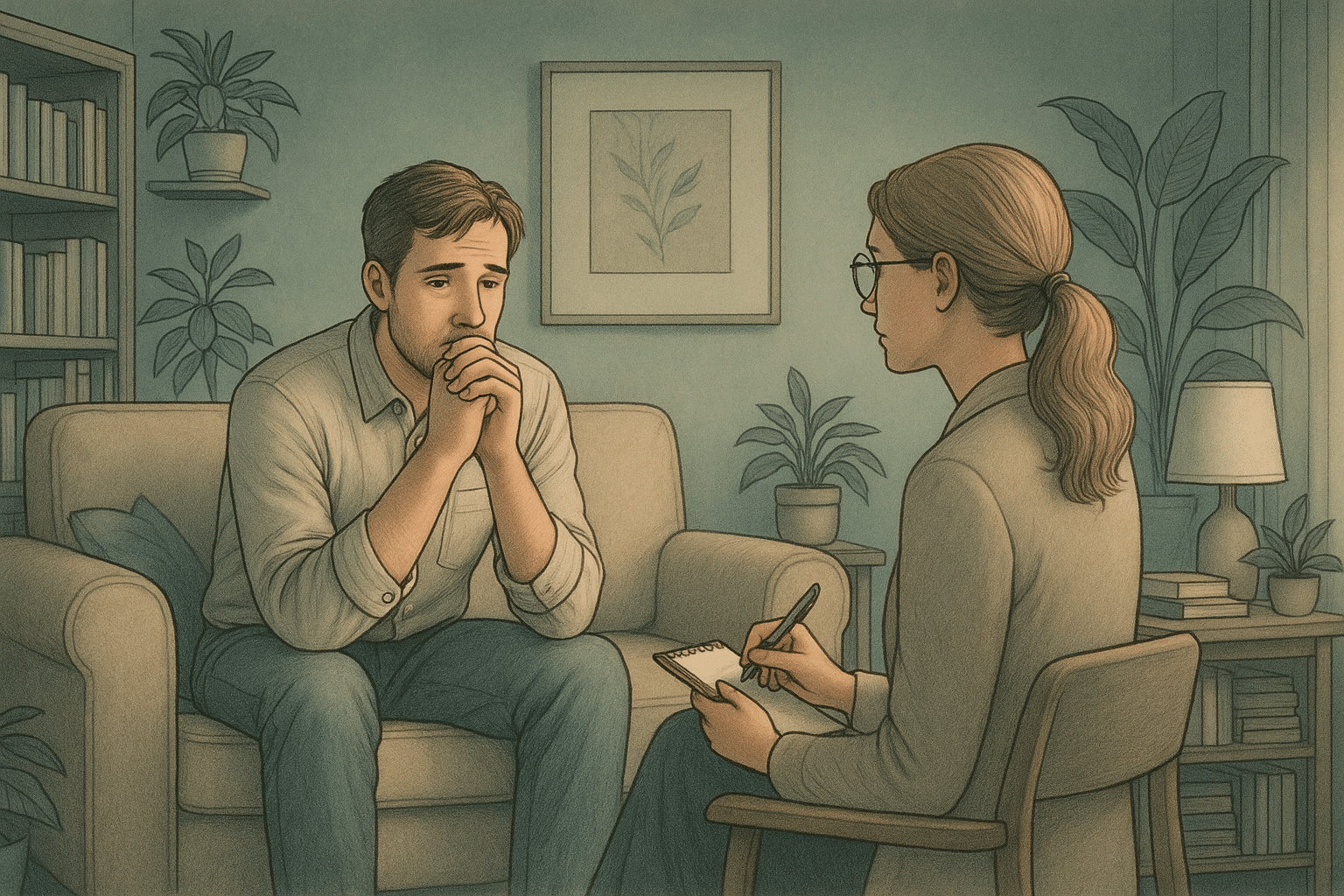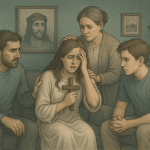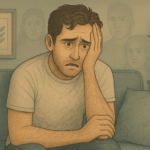Key Takeaways
- Sleep deprivation psychosis occurs after prolonged lack of sleep, leading to a distorted perception of reality.
- Symptoms can range from mild confusion to severe hallucinations and delusions.
- While restorative sleep is the primary treatment, effective recovery often requires addressing underlying conditions and implementing long-term lifestyle adjustments to prevent recurrence.
- A Mission For Michael (AMFM) offers multiple levels of care for sleep deprivation psychosis, from residential treatment for severe symptoms to outpatient programs for maintenance, with multidisciplinary teams providing personalized treatment plans.
Sleep Deprivation Psychosis Overview
Sleep deprivation psychosis is a serious condition that arises from not getting enough sleep over an extended period. When deprived of sleep, the brain cannot perform essential processes, leading to a breakdown in the perception of reality.
When you experience sleep deprivation psychosis, your brain can’t distinguish what’s real from what’s not.
Sleep deprivation psychosis affects more than just the individual suffering from it. It can impact relationships, work performance, and overall quality of life. Also, recognizing the signs early can prevent the condition from worsening and leading to more severe mental health issues.
Founded in 2010, A Mission For Michael (AMFM) offers specialized mental health care across California, Minnesota, and Virginia. Our accredited facilities provide residential and outpatient programs, utilizing evidence-based therapies such as CBT, DBT, and EMDR.
Our dedicated team of licensed professionals ensures every client receives the best care possible, supported by accreditation from The Joint Commission. We are committed to safety and personalized treatment plans.
Symptoms of Sleep Deprivation Psychosis
Early Symptoms
In the initial stages, symptoms might be subtle and easily dismissed. They can include:
- Increased irritability and mood swings
- Difficulty concentrating and making decisions
- Memory lapses and forgetfulness
- Slurred speech and impaired motor skills
These early symptoms share some similarities to mild alcohol intoxication. However, you should recognize these symptoms early, as they can quickly escalate if sleep deprivation continues.
Severe Symptoms
As sleep deprivation persists, symptoms can become more severe and disruptive. These include:
- Hallucinations, seeing or hearing things that are not there
- Delusions, holding onto false beliefs despite evidence to the contrary
- Severe confusion and disorientation
- Paranoia and heightened anxiety
These symptoms indicate that the brain is struggling significantly, and immediate intervention is necessary.
Causes of Sleep Deprivation Psychosis
Duration Without Sleep

The most direct cause of sleep deprivation psychosis is simply the amount of time spent awake.
Generally, symptoms of sleep deprivation begin to appear after 24 hours without sleep, starting with mild cognitive impairments like trouble focusing and irritability.
However, as wakefulness extends beyond 48 hours, the risk of more severe symptoms, such as hallucinations and delusions, increases significantly. The brain, deprived of its essential rest, struggles to perform even basic tasks, resulting in a distorted perception of reality.
Underlying Conditions
In some cases, underlying health conditions can exacerbate the effects of sleep deprivation. Disorders such as insomnia, sleep apnea, or chronic stress can make it difficult to achieve the restful sleep needed to prevent psychosis.
Mental health conditions like anxiety and depression can also increase susceptibility to sleep deprivation psychosis by interfering with the sleep cycle.
Environmental Factors
Several environmental factors can contribute to sleep deprivation, ultimately leading to psychosis. These can include irregular work hours, excessive use of electronic devices before bedtime, and poor sleep hygiene practices.
Creating a conducive sleep environment is vital in preventing sleep deprivation.
Treatment for Sleep Deprivation Psychosis
Restorative Sleep Strategies
Establish a consistent sleep schedule by going to bed and waking up at the same time every day, create a relaxing bedtime routine to signal to your body that it’s time to wind down, and limit screen time before bed, as the blue light emitted by screens can interfere with the production of sleep-inducing hormones.
These strategies can help you improve the quality and duration of sleep and ultimately reduce the risk of psychosis and help you recover.
Therapeutic Interventions

In some cases, professional intervention may be necessary to address sleep deprivation psychosis effectively.
Cognitive behavioral therapy for insomnia (CBT-I) is a common approach that helps individuals change thoughts and behaviors that interfere with sleep. Counseling or therapy can also address underlying mental health issues contributing to sleep disturbances.
Lifestyle Adjustments
Beyond immediate treatment, making long-term lifestyle adjustments can help maintain healthy sleep patterns and prevent future episodes.
Engage in regular physical activity, as exercise can promote better sleep, manage stress through relaxation techniques like meditation or yoga, and ensure a balanced diet, as nutrition can impact sleep quality.
Long-Term Outlook and Prevention
Expected Recovery Time
Recovery time can vary depending on the severity of symptoms and the duration of sleep deprivation. Most individuals begin to notice improvement after a few nights of restorative sleep, but full recovery may take several days to weeks. Consistent sleep and lifestyle changes are crucial for preventing recurrence.
Preventive Measures
Prevention is always better than cure, especially for sleep deprivation psychosis. To prevent this condition, focus on maintaining a consistent sleep schedule.
- Going to bed and waking up at the same time every day helps regulate your body’s internal clock.
- Create a restful sleeping environment—think dark, cool, and quiet.
- Avoid caffeine and electronics before bedtime as they can interfere with your ability to fall asleep.
When to Seek Professional Help
If you’ve made lifestyle changes and your sleep has not improved, or if you experience severe symptoms such as hallucinations or delusions, it’s time to seek professional help. Mental health professionals can offer treatments such as CBT for insomnia (CBT-I) or medication if necessary. Don’t wait for symptoms to worsen—early intervention is the best course to recovery.
Seeking help is not a sign of weakness but a proactive step towards taking control of your mental health.
Sleep Better with AMFM Personalized Treatment
At AMFM, we understand the devastating impact sleep deprivation psychosis can have on individuals and their families. Our comprehensive approach to treating this condition goes beyond simply addressing the symptoms—we focus on identifying and resolving the underlying causes while providing the structured environment necessary for restorative sleep.
With treatment centers across California, Virginia, and Washington, our multidisciplinary teams provide personalized care that combines evidence-based therapies, medication management when appropriate, and crucial lifestyle adjustments to prevent recurrence.

AMFM treatment facility.
If you need the support of our residential facilities for severe symptoms or our flexible outpatient programs for ongoing care, AMFM offers the full spectrum of treatment options to help you recover from sleep deprivation psychosis and establish healthy sleep patterns for long-term wellness.
Don’t let sleep deprivation continue to distort your reality—contact us today at 866-478-4383 for a confidential assessment and take the first step toward restful sleep and mental clarity.
Frequently Asked Questions (FAQ)
Can sleep deprivation psychosis become permanent?
In most cases, sleep deprivation psychosis is not permanent. Once you address the underlying sleep deprivation, symptoms typically resolve. However, if left untreated for an extended period, chronic sleep deprivation can lead to long-term mental health issues.
How quickly can symptoms appear?
Symptoms of sleep deprivation psychosis can appear as early as 24 hours without sleep. Initially, you might experience irritability and trouble concentrating. As sleep deprivation continues past 48 hours, more severe symptoms like hallucinations and paranoia can emerge.
How much sleep is needed to recover?
The amount of sleep needed for recovery can vary. Generally, most adults require 7–9 hours of sleep per night to function optimally. If you have been severely sleep-deprived, you might need more sleep initially to fully recover. Listen to your body and allow yourself the time needed to rest.
What treatment options does AMFM offer for sleep deprivation psychosis?
AMFM provides multiple levels of care depending on the severity of your symptoms. For severe cases, our residential treatment facilities offer 24/7 professional support in a structured environment conducive to restorative sleep.
For those with milder symptoms or transitioning from residential care, we offer partial hospitalization programs (PHP), intensive outpatient programs (IOP), and traditional outpatient services. All our programs include a combination of individual therapy, group counseling, psychiatric care for medication management when needed, and practical skills training to establish healthy sleep patterns.













